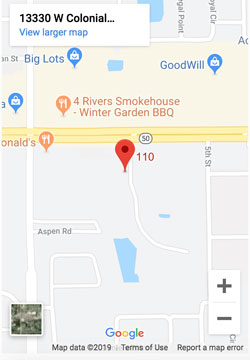5 Times You Need a Non-Compete Agreement Lawyer
As a business owner, you’ve poured countless hours and resources into building your company. You’ve developed unique processes, cultivated client relationships, and trained your team. The last thing you want is for an employee to leave and take that valuable knowledge directly to a competitor. A non-compete agreement is a critical tool for protecting your hard-earned assets, but a generic template downloaded from the internet likely won’t hold up in a Florida court. To be effective, the agreement must be carefully drafted to protect legitimate business interests without being overly restrictive. This is where a skilled non compete agreement lawyer becomes essential, helping you create enforceable contracts that safeguard your business.
Key Takeaways
- Your Strongest Position is Before You Sign: Don’t wait until there’s a problem. Having a lawyer review a non-compete during the hiring process gives you the leverage to negotiate fairer terms regarding time, location, and scope of work.
- A Signature Doesn’t Guarantee Enforceability: Florida law requires non-competes to be reasonable and protect a legitimate business interest. Overly broad restrictions on time, geography, or the type of work you can do can be challenged and may not hold up in court.
- Choose an Attorney with Relevant Florida Experience: Non-compete law is specific and varies by state and industry. The right attorney will have a deep understanding of Florida statutes and how local courts interpret them, giving you a significant advantage in negotiations or litigation.
What Is a Non-Compete Agreement?
Before we get into when you might need a lawyer, let’s cover what a non-compete agreement is. You’ve likely heard the term, but these contracts have specific rules that can impact your career or business, especially here in Florida. A non-compete isn’t just a formality; it’s a binding legal document with real-world consequences.
The Basics of Non-Competes
A non-compete agreement is a legal contract where an employee agrees not to compete with an employer for a set time and within a specific geographic area after leaving their job. The purpose is to protect an employer’s legitimate business interests, like trade secrets and client relationships. Think of it as the company’s way of safeguarding the special knowledge you gained while working there. Our firm handles all aspects of business law and can help you understand these contracts.
Common Misconceptions
One of the biggest myths is that signing a non-compete makes it automatically enforceable. That’s not always true. Enforceability depends on the circumstances and state laws. In Florida, a non-compete must protect a legitimate business interest—an employer can’t use it just to stop former employees from working in their field. If an agreement is overly broad or lacks a valid reason, a court may refuse to enforce it. Never assume a non-compete is unbreakable.
Florida’s Non-Compete Laws
Florida has its own rules for non-competes, detailed in Florida Statute 542.335. This law requires any restriction to be reasonable in time, geographic area, and scope of activities. For example, an agreement banning you from working in your industry nationwide for 20 years would likely be unreasonable. The law balances protecting a company’s interests with an individual’s right to earn a living. Understanding these state guidelines is crucial for both employers and employees.
Which Industries Use Non-Competes?
While any business can use a non-compete, they are common in certain fields. Industries that rely on proprietary information and client relationships frequently use them to protect their competitive edge. You’ll often see non-competes in technology, healthcare, finance, and sales. In these sectors, employees often access sensitive data or training that could be damaging if taken to a competitor. Disputes over these agreements often lead to business litigation, making a clear contract essential from the start.
When to Hire a Non-Compete Lawyer
Knowing when to call a lawyer about a non-compete agreement can make all the difference. These contracts can significantly impact your career or business, and timing is everything. Whether you’re an employee being asked to sign one or a business owner looking to protect your company, certain moments absolutely require legal guidance. Getting advice at the right time can help you avoid future conflicts, protect your ability to earn a living, and ensure any agreement you’re a party to is fair and enforceable under Florida law. Here are five key situations where you should reach out to a non-compete lawyer.
Before You Sign an Agreement
The best time to get legal advice is before you put pen to paper. Once you sign a contract, you are legally bound by its terms, even if they are unfair. If you’re in a specialized role or have access to sensitive company information, an employer will likely present you with a non-compete. Instead of just signing it, have an attorney review the document first. A lawyer can explain what each clause means for your future career prospects and help you understand if the restrictions on time, location, and scope of work are reasonable. This proactive step is the single most effective way to protect your interests.
When Your Job Changes
Your career isn’t static, and neither are your employment agreements. If you get a promotion, your job duties change significantly, or your company is acquired, it’s a good time to revisit your non-compete agreement. A contract you signed as a junior employee might not be appropriate for a management role. These changes can sometimes void an existing agreement or, conversely, make its restrictions much more limiting than you originally anticipated. A quick consultation with a lawyer can clarify where you stand and whether you need to renegotiate the terms to match your new position, ensuring your career growth isn’t unfairly restricted.
If Your Former Employer Takes Action
If you’ve already left a job and your former employer accuses you of violating your non-compete, you need to contact a lawyer immediately. This often starts with a cease-and-desist letter and can escalate to a lawsuit. Don’t ignore these communications. An attorney can assess the strength of your ex-employer’s claim and the enforceability of the agreement itself. Many non-competes are overly broad or don’t serve a legitimate business interest, making them invalid in court. Our experienced business litigation attorneys can help you formulate a response and defend your right to work.
To Protect Your Business
Non-compete agreements are also a vital tool for business owners. If you’re an employer, you need to protect your trade secrets, client lists, and investment in employee training. A well-drafted non-compete can prevent a former employee from taking your proprietary information to a direct competitor. It can also help stabilize your workforce and reduce costly turnover. A lawyer can help you create agreements that are strong enough to be effective but also reasonable enough to be upheld by Florida courts, tailoring them to your specific industry and business needs.
During Contract Negotiations
Signing a contract isn’t always a take-it-or-leave-it situation. You often have the power to negotiate, especially if you have valuable skills. A lawyer can be your best advocate during these discussions. They can help you push back on unreasonable terms and suggest specific, narrow language that protects the employer’s interests without preventing you from earning a living. For example, instead of agreeing not to work in an entire industry, you might negotiate to only be restricted from working for a few specific competitors. This ensures the agreement is fair and tailored to your unique situation.
How a Lawyer Can Protect You
Facing a non-compete agreement can feel intimidating. These documents are filled with legal jargon that can be difficult to understand, and signing one without fully grasping the terms can have long-lasting effects on your career. This is where having a skilled attorney on your side makes all the difference. A lawyer acts as your advocate, your interpreter, and your defender, ensuring your rights are protected every step of the way. They can help you understand exactly what you’re agreeing to and work to secure terms that are fair and reasonable.
Whether you’re about to sign a new employment contract, are considering leaving your current job, or are facing legal action from a former employer, a lawyer provides critical support. They can analyze the agreement for potential red flags, negotiate more favorable conditions, and represent you if a dispute ends up in court. Their expertise in Florida business law allows them to identify terms that may not be enforceable and build a strong case on your behalf. Instead of trying to handle this complex legal issue alone, you can rely on a professional to guide you toward the best possible outcome for your situation.
Reviewing the Fine Print
Before you sign anything, a lawyer can meticulously review the non-compete agreement. They will translate the dense legal language into plain English, so you know exactly what restrictions you would be under. Their trained eye can spot clauses that are overly broad, ambiguous, or potentially unenforceable under Florida law. This review process is crucial for understanding the full scope of the agreement, including the duration, geographic limitations, and the specific activities you would be prohibited from doing. By identifying these potential pitfalls early, you can avoid future career limitations and legal headaches.
Negotiating on Your Behalf
If an agreement seems too restrictive, you don’t just have to accept it as is. An experienced attorney can act as your negotiator, communicating directly with the employer to propose changes. They can advocate for more reasonable terms, such as reducing the time frame of the non-compete, shrinking the geographic area it covers, or clarifying the scope of restricted activities. The goal is to find a middle ground that protects the employer’s legitimate business interests without unfairly hindering your ability to earn a living. This negotiation can make a significant difference in your future career flexibility.
Defending You in Court
If a former employer accuses you of violating a non-compete and decides to take legal action, having a lawyer is essential. Your attorney will represent you in court, building a defense to protect your rights. They can argue that the agreement is invalid, that its terms are unreasonable, or that you did not actually violate the contract. Our firm’s business litigation attorneys are prepared to handle these disputes, working to have the agreement declared unenforceable or to reach a favorable settlement. Their presence ensures you have a powerful advocate fighting for you when the stakes are high.
Challenging Unreasonable Terms
Florida law requires non-compete agreements to be reasonable in scope, duration, and geographic area to be enforceable. If a contract includes terms that are excessively restrictive, a lawyer can help you challenge them. For example, an agreement that prevents you from working in your industry anywhere in the country for a decade would likely be considered unreasonable. An attorney can analyze the specifics of your situation and build a case arguing that the terms are unfair and go beyond what is necessary to protect the employer’s interests, potentially invalidating the entire agreement.
Explaining Your Rights and Options
Understanding your legal position is the first step toward making a smart decision. A lawyer can provide a clear explanation of your rights and all the available options. They will assess the strengths and weaknesses of your case, outline potential outcomes, and offer strategic advice tailored to your career goals. Whether you’re deciding whether to sign an agreement, planning your exit from a company, or responding to a legal threat, this guidance is invaluable. It empowers you to make informed choices with confidence. If you have questions about a non-compete, you can contact our team for a consultation.
What Makes a Non-Compete Enforceable?
Just because a non-compete agreement is in writing doesn’t automatically make it legally binding. In Florida, courts look closely at these contracts to make sure they are fair and balanced. An enforceable non-compete must be designed to protect a company’s valid concerns without unfairly preventing you from making a living.
Think of it as a balancing act. The agreement needs to be reasonable in its scope, clear in its language, and justified by a real business need. If a non-compete is overly broad, vague, or seems designed to simply punish a former employee, a court may refuse to enforce it or may modify its terms to be more reasonable. Understanding these key elements is the first step in figuring out where you stand and what your options are.
Time and Distance Limits
One of the first things a court will examine is the non-compete’s restrictions on time and geographic area. These limits must be reasonable. For example, an agreement that prohibits you from working in a similar role anywhere in the country for ten years would almost certainly be considered unenforceable. However, a restriction that applies to a few specific counties for six months might be seen as perfectly reasonable. Florida law provides guidelines for what is presumed to be reasonable, and an experienced business law attorney can help you understand how these rules apply to your specific situation and industry.
Legitimate Business Interests
A company can’t use a non-compete just to eliminate competition. To be enforceable, the agreement must protect a “legitimate business interest.” This means the employer has to show they are trying to safeguard something valuable and specific. Common examples include protecting trade secrets, confidential business information, substantial relationships with specific customers, or specialized training that the company provided. The agreement should be narrowly tailored to protect only these interests. If the restrictions go beyond what’s necessary, a court may find the non-compete invalid because it’s not serving its intended, lawful purpose.
Clear and Reasonable Terms
Clarity is key. If the terms of your non-compete are confusing, ambiguous, or overly harsh, it may not hold up in court. The agreement should clearly define what type of work is restricted, which geographic areas are covered, and exactly how long the restrictions last. Vague language can render a contract unenforceable because it’s impossible for an employee to know what they can and cannot do. The overall goal is fairness; the terms shouldn’t place an undue hardship on you or prevent you from finding any work in your field. An agreement that is too restrictive can be challenged as unreasonable.
Public Policy Concerns
In some cases, a non-compete agreement might be struck down because enforcing it would harm the public. This is a less common but still important factor. For instance, if enforcing a non-compete against a doctor would leave a rural community without any specialists in a particular field of medicine, a court might decide that the public’s need for healthcare outweighs the employer’s business interests. The legal system aims to balance protecting businesses with ensuring the public good, and non-competes that threaten public health, safety, or welfare can be deemed unenforceable on these grounds.
Rules for Your Specific Industry
What’s considered “reasonable” can change dramatically from one industry to another. The expectations for a high-level tech executive with access to sensitive code will be very different from those for a salesperson or a graphic designer. An enforceable non-compete should reflect the specific realities of your profession. It’s also crucial that the agreement is supported by valid “consideration,” which means you received something of value in exchange for signing it, such as the job itself, a bonus, or a promotion. The experienced attorneys at Legal Counsel, P.A. can provide insight into the standards and norms that apply to your particular industry in Florida.
How to Choose the Right Non-Compete Lawyer
Finding the right lawyer can feel like a daunting task, especially when you’re dealing with the stress of a non-compete agreement. But the right legal partner can make all the difference in protecting your career and your future. You want someone who not only understands the law but also understands your situation. Think of it as building a team—you need an expert in your corner who can guide you through the process with clarity and confidence. This isn’t just about finding someone with a law degree; it’s about finding an advocate who will fight for your best interests. The attorney you choose will be responsible for reviewing complex documents, negotiating with your former (or current) employer, and potentially representing you in court. Their expertise, communication skills, and familiarity with your industry can directly impact the outcome of your case. Taking the time to vet your options and ask the right questions will set you up for the best possible outcome. Here are five key things to look for when choosing a non-compete lawyer.
Look for Relevant Experience
Non-compete agreements fall under a specific niche of business and employment law. You don’t want a general practitioner; you need a lawyer who has hands-on experience with these types of contracts. When you first speak with a potential attorney, ask them directly about their background with non-compete cases in Florida. How many have they handled? What were the outcomes? An experienced lawyer will be familiar with the tactics opposing counsel might use and how local judges tend to rule on these matters. This specialized knowledge is invaluable, whether you’re negotiating terms or challenging an agreement in court. Look for a firm with a strong focus on Florida business law to ensure you have a true expert on your side.
Ask About Their Fees
Before you commit to working with a lawyer, you need to have a clear understanding of their fee structure. Don’t be shy about asking for this information during your initial consultation. Most attorneys work on an hourly basis, but some may offer a flat fee for specific services, like reviewing a contract. Ask for their hourly rate and whether they require a retainer, which is an upfront payment held in a trust account. A reputable lawyer will be transparent about all potential costs so there are no surprises down the road. Getting this information upfront allows you to make an informed financial decision. You can schedule a consultation to discuss your case and get a better sense of the potential investment.
Find a Good Communicator
Legal jargon can be confusing, and the last thing you need is a lawyer who makes you feel more uncertain. A great non-compete lawyer is also a great communicator. They should be able to explain your rights, your options, and the potential risks in a way that you can easily understand. During your first conversation, pay attention to how they listen and respond to your questions. Do you feel heard? Are they patient and clear in their explanations? You’ll be working closely with this person, so you want to feel comfortable reaching out to them. A strong communicator will keep you informed at every stage, giving you the confidence that your case is in good hands.
Confirm They Know Your Industry
A non-compete agreement that’s considered reasonable in one industry might be completely unenforceable in another. That’s why it’s so important to find a lawyer who understands the norms and practices of your specific field. An attorney with experience in your industry will have a much better grasp of what constitutes a legitimate business interest and what is simply an attempt to stifle competition. They can provide insight into typical restrictions on time and geographic scope for your profession. This industry-specific knowledge gives your lawyer a significant advantage when it comes to building a strong case or negotiating more favorable terms on your behalf. Be sure to ask about their experience with clients in your line of work.
Check Their Credentials
Finally, do a little homework to verify the lawyer’s credentials. You can start by reviewing their professional biography on their firm’s website, which should detail their education, areas of focus, and legal experience. You can also check their standing with The Florida Bar to ensure they are licensed and in good standing. Reading client reviews or testimonials can also provide valuable insight into what it’s like to work with them. Choosing an attorney is a significant decision, and taking these extra steps can give you peace of mind. The attorneys at Legal Counsel, P.A. have extensive experience in Florida business and employment law and are ready to help you with your case.
Related Articles
- Non-Compete Agreement – Legal Counsel P.A.
- Non-Compete Violations – Legal Counsel P.A.
- The Enforcement of No Competition Law in Florida – Legal Counsel P.A.
- FTC moves forward with ruling to ban non-compete agreements nationwide – Legal Counsel P.A.
- Confidentiality Agreements – Legal Counsel P.A.
Frequently Asked Questions
What if I already signed a non-compete agreement that I now realize is unfair? It’s a common situation, so don’t panic. Signing a contract doesn’t automatically mean every clause is enforceable, especially in Florida. The best thing you can do is have an attorney review the document you signed. They can assess whether its terms for time, location, and scope are reasonable under state law and advise you on your options if you’re planning to change jobs. It’s much better to understand your legal standing before you make a career move.
Can my employer make me sign a non-compete after I’ve already been working there for a while? Yes, this can happen. An employer might ask you to sign a non-compete as a condition of continued employment, a promotion, or a raise. In Florida, your ongoing job can be considered the valid exchange needed to make the contract binding. However, this is a crucial moment to pause and seek legal advice. An attorney can review the proposed agreement and help you negotiate terms that are fair before you agree to any new restrictions.
What are the actual consequences if I violate my non-compete agreement? Ignoring a non-compete can lead to serious legal trouble. Your former employer could send you a cease-and-desist letter, or they could file a lawsuit against you and your new employer. They might ask the court for an injunction, which is a court order that would immediately stop you from working. They could also sue you for financial damages they believe your new role has caused their business. It’s a risk you shouldn’t take without first consulting a lawyer.
Does my non-compete still apply if I was fired or laid off? In Florida, the reason you left your job—whether you quit, were laid off, or were fired—generally doesn’t automatically void a non-compete agreement. The contract is typically considered valid regardless of the circumstances of your departure. However, a judge might consider the situation when deciding whether it is fair and reasonable to enforce the agreement against you. This is a complex area where having an attorney to argue on your behalf is incredibly important.
As a business owner, can I just use a template non-compete I found online? Using a generic template is a significant risk. Online forms are not tailored to your specific business needs or the nuances of Florida law, which has very particular requirements for what makes a non-compete enforceable. A weak or overly broad agreement might be thrown out by a court, leaving your business completely unprotected when you need it most. Investing in a custom-drafted agreement from a qualified attorney ensures it will be strong, specific, and designed to hold up in court.

















